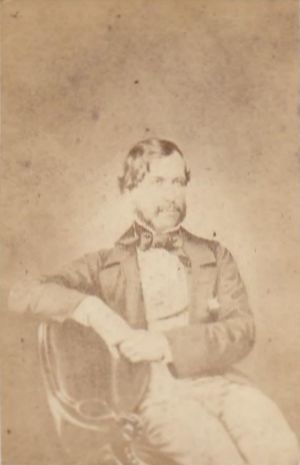George Carnac Barnes facts for kids
George Carnac Barnes (born 1818 – died 13 May 1861) was a British government official who worked in British India. He was known for his important work there and for being awarded the Order of the Bath (CB), a special honor from the British Crown.
Contents
Early Life and Education
George Carnac Barnes was the son of George Barnes, who was a priest. George Carnac Barnes went to Westminster School, a famous school in London. After finishing school, he traveled to India to begin his career.
Working in India
Role as Commissioner
George Carnac Barnes became a high-ranking official called a Commissioner. He was in charge of an area in India known as the Cis-Sutlej States. This region was very important because it was located near the Sutlej River.
The Indian Rebellion of 1857
During the Indian Rebellion of 1857, also known as the Indian Mutiny, there was a big uprising against British rule in India. George Carnac Barnes played a key role in keeping the Cis-Sutlej States loyal to the British government. His actions helped to prevent more widespread conflict in that area. For his success in this difficult time, he was given the honor of being a Companion of the Order of the Bath (CB). This award recognized his excellent service to the country.
Foreign Secretary and Later Years
Later, George Carnac Barnes was chosen to be the Foreign Secretary for the Government of India. This was a very important job, dealing with relations between the British government in India and other countries or states. He was appointed to this role by Lord Canning, who was the Governor-General of India at the time. Sadly, George Carnac Barnes became ill with dysentery and passed away soon after taking on this new role in 1861.
Family Connections
George Carnac Barnes came from a family of notable people. His son, Sir George Stapylton Barnes, also became a civil servant, working for the government in both Britain and India. Another one of his sons, Arthur Stapylton Barnes, became a respected Roman Catholic priest. His nephew, Sir Hugh Shakespear Barnes, also held important positions in India, continuing the family's tradition of public service.
 | James B. Knighten |
 | Azellia White |
 | Willa Brown |


